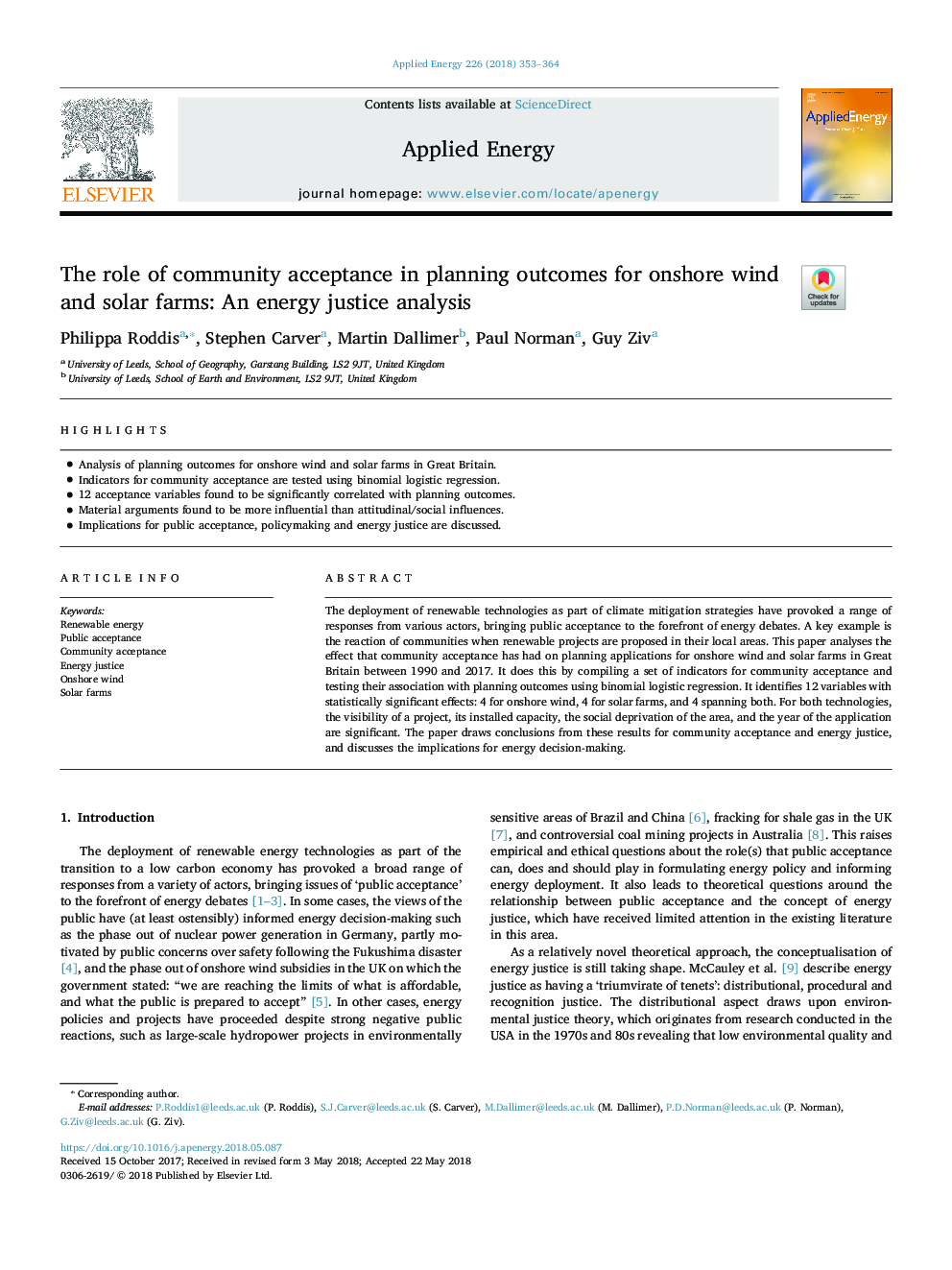| Article ID | Journal | Published Year | Pages | File Type |
|---|---|---|---|---|
| 6679876 | Applied Energy | 2018 | 12 Pages |
Abstract
The deployment of renewable technologies as part of climate mitigation strategies have provoked a range of responses from various actors, bringing public acceptance to the forefront of energy debates. A key example is the reaction of communities when renewable projects are proposed in their local areas. This paper analyses the effect that community acceptance has had on planning applications for onshore wind and solar farms in Great Britain between 1990 and 2017. It does this by compiling a set of indicators for community acceptance and testing their association with planning outcomes using binomial logistic regression. It identifies 12 variables with statistically significant effects: 4 for onshore wind, 4 for solar farms, and 4 spanning both. For both technologies, the visibility of a project, its installed capacity, the social deprivation of the area, and the year of the application are significant. The paper draws conclusions from these results for community acceptance and energy justice, and discusses the implications for energy decision-making.
Related Topics
Physical Sciences and Engineering
Energy
Energy Engineering and Power Technology
Authors
Philippa Roddis, Stephen Carver, Martin Dallimer, Paul Norman, Guy Ziv,
